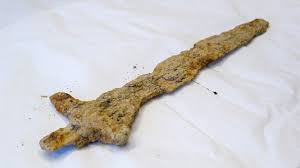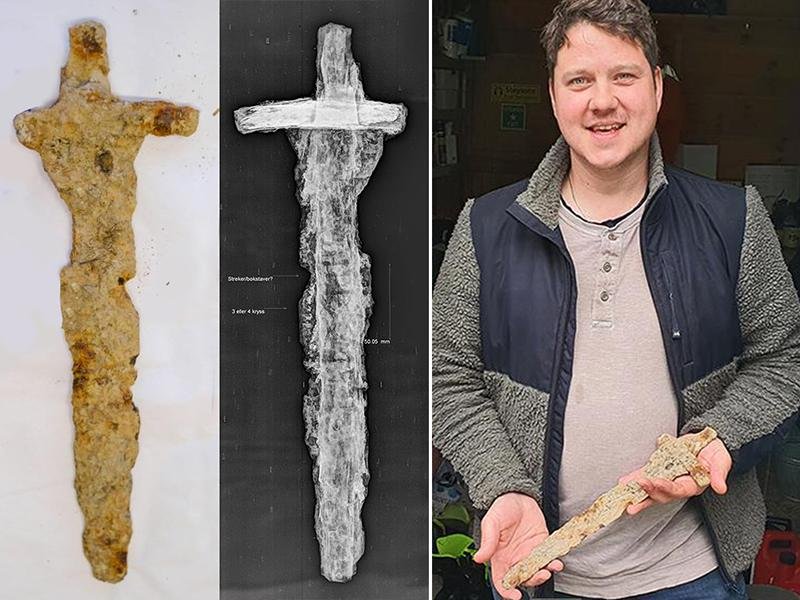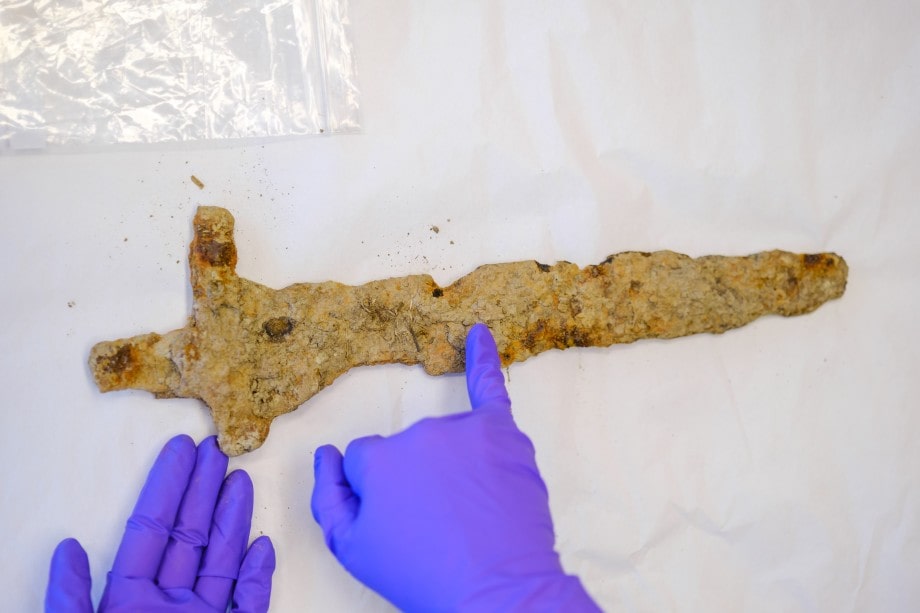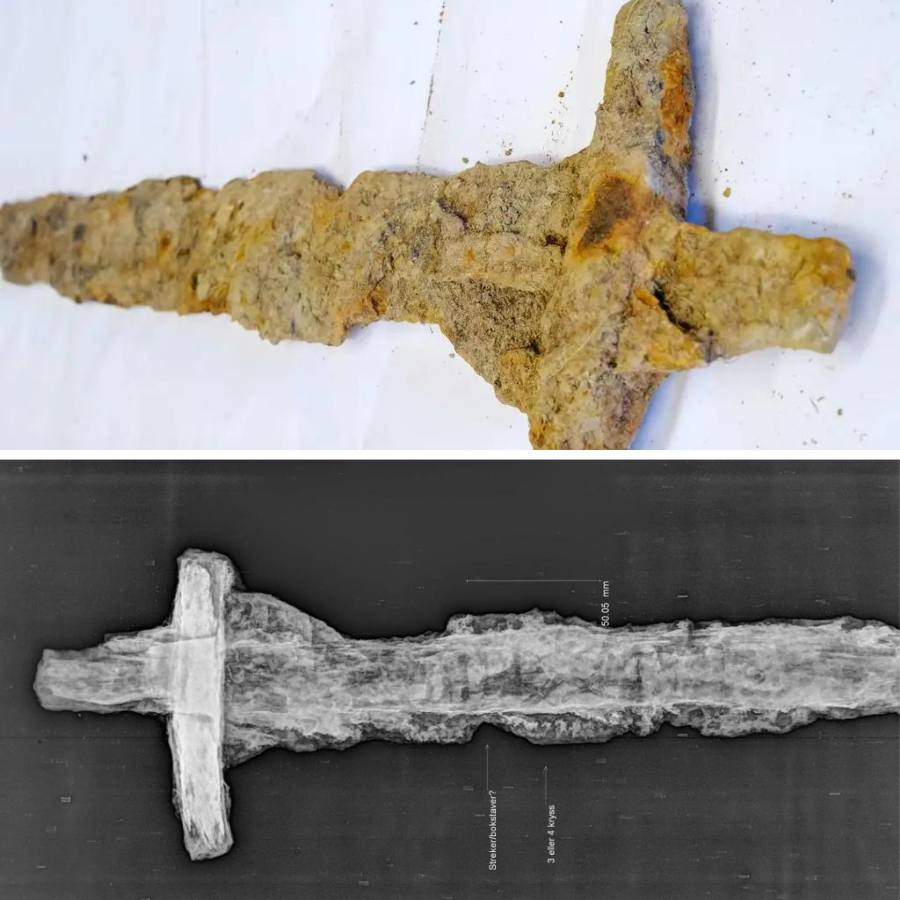In a remarkable turn of events, a Norwegian farmer has stumbled upon a rare and historically significant Viking sword while preparing his field for sowing new grass. This discovery not only sheds light on the rich cultural heritage of the region but also offers a tantalizing glimpse into the past, capturing the imagination of historians and archaeologists alike.
The Serendipitous Find
Øyvind Tveitane Lovr, a farmer in the small town of Studal, Norway, was going about his routine farming duties when he made an unexpected and extraordinary discovery. As he was tending to his field, preparing the soil for the planting of new grass, he came across what he initially mistook for a piece of rusty farm equipment. However, upon closer inspection, Lovr realized that the object was in fact the hilt of a Viking sword.
Recognizing the potential significance of his find, Lovr promptly reported it to the local authorities at the Rogaland County Council, as per Norwegian law. All discoveries that fall under the Cultural Heritage Act sections 12 and 14 are considered state property and must be declared, ensuring the preservation and study of these invaluable artifacts.
Uncovering the Sword’s Secrets

The surviving portion of the sword measures an impressive 37 cm in length, with approximately half of the blade missing. Archaeologists from the Archaeological Museum of the University of Stavanger conducted an X-ray examination of the sword, revealing a remarkable discovery – the outline of inscriptions, including a cross pattern and possibly letters along the remaining blade.
“This indicates that it might be a so-called VLFBERHT sword from the Viking Age or the early Middle Ages,” explained Sigmund Oehrl, a professor from the University of Stavanger. VLFBERHT swords were high-quality weapons produced in the Frankish Empire, now modern-day Germany, and were marked with the weapon manufacturer’s name.
Out of the thousands of Viking swords found across Europe, only 170 bear these inscriptions, with just 45 examples discovered in Norway. This suggests that the Studal sword is a rare and valuable find, providing valuable insights into the trading networks and cultural exchanges that existed during the Viking era.
The Significance of the Studal Sword
The discovery of the Studal sword holds significant historical and cultural importance. Professor Oehrl believes that the sword was likely brought by Vikings who sailed into the Lovrafjord and dates back to between AD 900 and 1050, a period when the Viking Age was at its peak.

“This is an incredibly significant find,” said Oehrl. “Not only does it shed light on the Viking presence in this region, but the inscriptions on the blade suggest that it was a high-quality weapon, possibly belonging to a wealthy or influential individual.”
The Studal sword is a testament to the rich cultural heritage of Norway and the enduring legacy of the Viking people. Its discovery has sparked excitement within the academic community, as it provides a tangible connection to the past and offers new avenues for research and exploration.
The Ongoing Investigation
Archaeologists from the University of Stavanger have conducted further investigations at the find site, but have not yet discovered any additional traces of the missing sword elements or related objects. The search for more clues continues, as researchers work to unravel the full story behind this remarkable discovery.

“We are incredibly fortunate to have found this sword, and we are determined to learn as much as we can about its origins and significance,” said Oehrl. “Every new discovery has the potential to shed light on the rich history and culture of the Viking people, and we are committed to preserving and studying this remarkable artifact.”
Conclusion
The discovery of the Studal sword in Norway is a testament to the enduring legacy of the Viking people and the ongoing efforts of archaeologists and historians to uncover the secrets of the past. This rare and valuable find has captured the imagination of the public and the academic community alike, offering a tantalizing glimpse into the cultural exchanges and trading networks that defined the Viking Age.
As the investigation into the Studal sword continues, we can only imagine the wealth of insights and information that this remarkable artifact will reveal. For now, the sword stands as a symbol of the enduring resilience and ingenuity of the Viking people, a testament to the power of serendipity and the ongoing quest to uncover the mysteries of the past.
